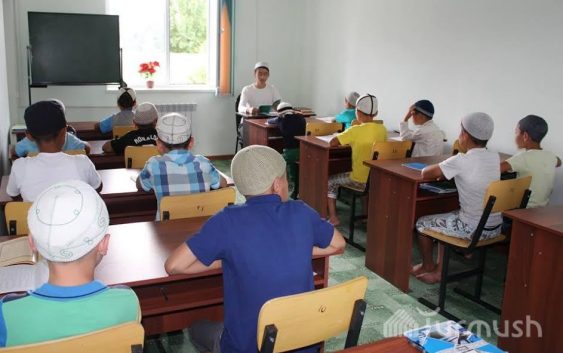The Bulan Institute is publishing this report which contains research on curricula and conditions at the Islamic religious educational institutions in Kyrgyzstan, with a special focus on madrasah. In the Republic, there are nine Islamic Institutions and one Islamic university registered at the State Commission on Religious Affairs. Also, there are 102 registered madrasah, with only 78 from them currently functioning. Regarding madrasah, this report attempts to address the following problems: non-compliance with the unified curriculum approved by the Council of Ulema of the Spiritual Directorate of Muslims (the Muftiate), the absence of secular subjects in the curriculum, the lack of stable financial sources, poor conditions for education, and the shortage of qualified teaching staff.
The Bulan Institute conducted interviews with more than fifty specialists, including madrasah leaders, ex-ministers, theologians, teachers, employees of the State Commission on Religious Affairs, the Ministry of Education and Science, employees of the Spiritual Board of Muslims of Kyrgyzstan, as well as independent experts. During the collection of information and the preparation of this report, 12 journalists and three specialists who knew the industry, actively contributed to this report. The report was prepared directly by three Institute staff and two consultants.
In this report, the Bulan Institute has not limited itself to conducting only an analysis of the state of Islamic religious education in the Republic, but also raises the problem of integration and proper interaction of secular and religious entities. It must be respectively noted that, for the first time since independence, the Kyrgyz government has finally started to pay attention to the problems of religious education in the country. A working group, established by the Kyrgyz government, has developed a “Concept for Reforming Religious Education in Kyrgyzstan” and made public discussions. This concept is aimed at bringing all religious educational institutions of the country in line with state standards qualifications. In addition, the document aims to support the initiative to introduce secular subjects in the religious curriculum and raise the issue of the need for mandatory education along with religious and secular education by students who are enrolled in these schools.
This report contains an analysis of events conducted at a state-level and aimed at researching the current state of affairs in the Islamic religious educational system, as well as providing recommendations on the topic.

